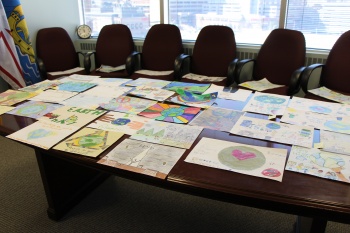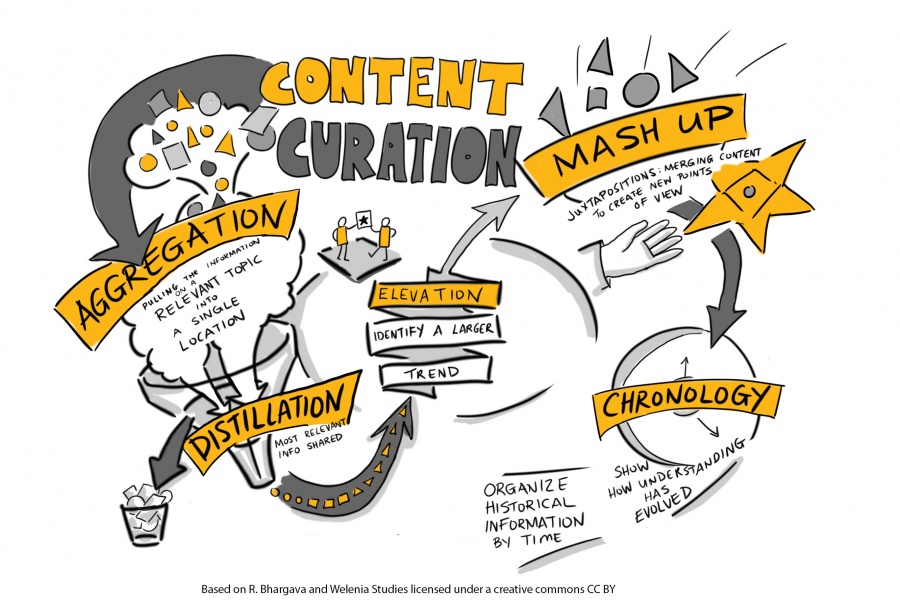Content curators provide a customised, vetted selection of the best and most relevant resources on a very specific topic.
Beth Kanter, a social media author and blogger, provides this definition of curation in her blog Content Curation Primer:
- “Content curation is the process of sorting through the vast amounts of content on the web and presenting it in a meaningful and organized way around a specific theme. The work involves sifting, sorting, arranging, and publishing information. A content curator cherry picks the best content that is important and relevant to share with their community. It isn’t unlike what a museum curator does to produce an exhibition: They identify the theme, they provide the context, they decide which paintings to hang on the wall, how they should be annotated, and how they should be displayed for the public”.
If the notion of content curation is new to you, or if you want to brush up on your understanding of the concept, review the following references to learn more:
- This video that answers the question What is Content Curation? (Centerline Digital, 2015):
- A graphic view of content curation:
Think about how you would define content curation, and how it might be important and/or useful for you and for your learners.




